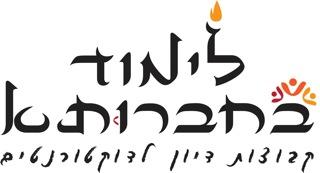במפגש זה קראנו חלקים מתוך הדרשה השלוש־עשרה של אפרהט הפרסי, אחד מן הכתבים המוקדמים ביותר מן הנצרות הסורית. הדרשה עוסקת בשבת, וליתר דיוק – בטענת היהודים שהשבת מזכה את שומריה בצדיקות. שלומי אפרתי הוביל את הקריאה והדיון, ושיתף ממחקרו על ההקבלות בין חלק מן המהלכים של אפרהט לבין דרשות חז"ל מחד ותפיסות המוכרות מהעולם ההלניסטי ומחיבורים יהודיים-הלניסטיים מאידך. במהלך העיון עלו לא רק הקבלות תמטיות כלליות, אלא אף הקבלה של יחידה רטורית/מדרשית שלמה בין אפרהט למכילתא דרבי ישמעאל, שממנה התעוררה שאלת טיב הזיקה בין אפרהט לבין מסורות יהודיות.
משתתפים: איתי קגן, אלון ברנד, מרדכי וינטרויב, חגי עמנואל, יעל קרמר, יונתן מי־טל, שלומי אפרתי, עדי אמסטרדם, רבקה אליצור–ליימן, עברי בוניס, אברהם יוסקוביץ'.
In this session we read selections from the 13th demonstration of Aphrahat the Persian, one of the earliest texts of Syriac Christianity. This demonstration deals with the Sabbath, and more precisely – with the Jewish claim that the Sabbath grants its observers righteousness. Shlomi Efrati led the reading and discussion and shared his research on the parallels between some of Aphrahat’s arguments and Rabbinic Midrashim on the one hand, and ideas known from the Hellenistic world and from Jewish-Hellenistic writers on the other. During the discussion, we saw not only general thematic similarities, but also a parallelism of an entire rhetorical/midrashic unit between Aphrahat and the Mekhilta de Rabbi Yishmael, out of which arose the question of the nature of the connection between Aphrahat and Jewish traditions.
Participants: Itai Kagan, Alon Brand, Mordechai Vaintroub, Chagai Emanuel, Yael Krämer, Jonathan Mey-Tal, Shlomi Efrati, Adi Amsterdam, Rivka Elitzur-Leiman, Ivri Bunis, Avraham Yoskovitch.


